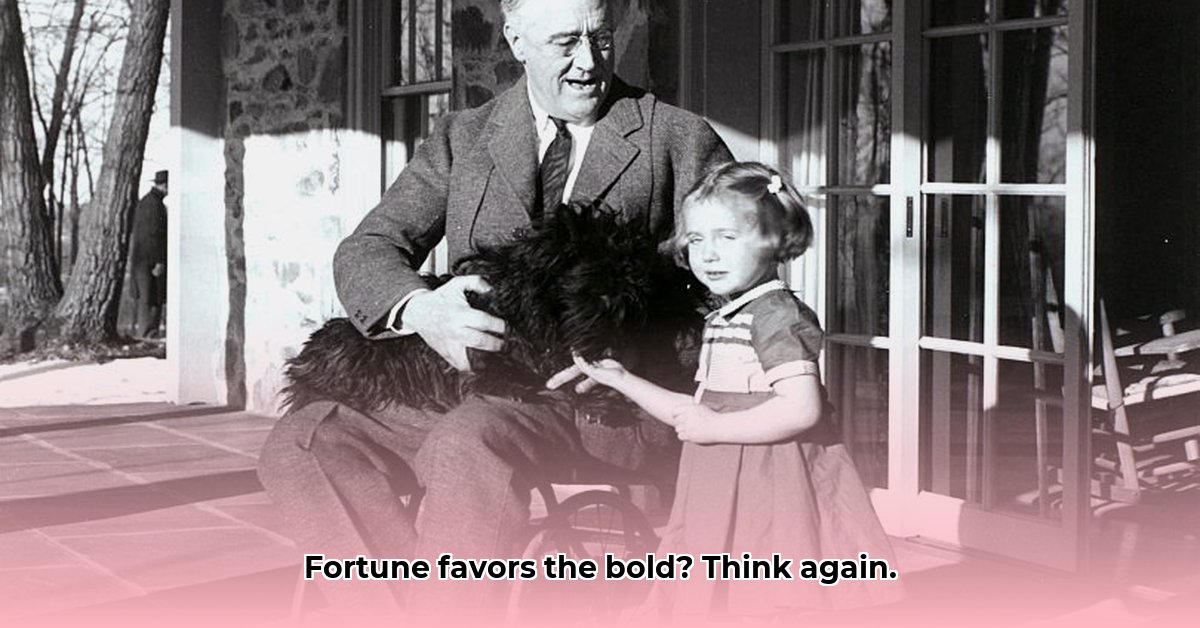
Fortis Fortuna Adiuvat Meaning: A Journey Through Time
The saying "Fortune favours the bold" – Fortis Fortuna Adiuvat in Latin – resonates across millennia, from ancient Roman battlefields to modern boardrooms. But its meaning isn't as straightforward as it initially seems. Is it a simple encouragement of reckless abandon, or is there a deeper, more nuanced understanding to be gleaned? The answer, as with most historical phrases, is far more complex.
Initially, within the context of the Roman Empire, the proverb carried a strong element of fate. Fortuna, the Roman goddess of luck, was famously capricious. While she might smile upon the brave, it wasn't a guaranteed outcome. This early interpretation emphasizes the significant role of chance, even for the most courageous warriors. Success was, to a large extent, a gamble.
The Renaissance period introduced a fascinating shift in perspective. Niccolò Machiavelli, the renowned political strategist, reframed fortune not as a blind force of nature but as a powerful river. While it could indeed sweep away the unprepared, a skilled navigator could learn to understand its currents, predict its turns, and even harness its power.
Boldness, under Machiavelli's interpretation, evolved beyond reckless charging into danger. It transformed into a blend of astute planning, strategic thinking, and a willingness to embrace calculated risks. It's about knowing when to leap, but only after carefully considering the landscape.
This refined understanding of boldness finds a surprising modern parallel in the character of John Wick. His iconic tattoo, a variation of the proverb, perfectly encapsulates this evolved meaning. Wick isn't a reckless action hero; he's exceptionally prepared, resilient, and hyper-aware of potential consequences. He embodies the sophisticated interpretation of Fortis Fortuna Adiuvat, where boldness is intertwined with meticulous planning, precision, and a deep understanding of risk. It's not about disregarding danger, but about mastering it through preparation and expertise.
But what exactly constitutes "boldness"? It's not a monolithic concept; it exists on a spectrum.
| Level of Boldness | Description | Likely Outcomes |
|---|---|---|
| Reckless | Impulsive, lacking preparation, ignoring potential consequences. | High chance of failure; minimal chance of significant success. |
| Calculated | Strategic, well-prepared, risks carefully assessed and managed. | Higher chance of success; manageable levels of risk. |
| Cautious | Deliberate, prioritizing safety above all else, minimal risk-taking. | Low chance of both significant success and substantial failure. |
This spectrum highlights the proverb's adaptability. Its meaning isn't static; it's fluid, reflecting our evolving comprehension of risk and reward. It's a phrase that continues to evolve, resonating with each new generation. Isn't it fascinating how a simple proverb can hold such depth and complexity?
So, how can we apply this ancient wisdom to our modern lives? It necessitates a more nuanced approach to ambition and risk-taking.
- Assess risks realistically: Avoid impulsive actions; prioritize intelligent decisions.
- Embrace calculated courage: Thorough preparation mitigates potential setbacks.
- Learn from failures: Even meticulously planned actions may not always succeed. Resilience and adaptability are key.
In essence, Fortis Fortuna Adiuvat transcends blind daring. It’s a potent blend of bravery, smart planning, and a clear understanding of potential outcomes. It's about navigating life's unpredictable course with skill, determination, and wisdom. The boldest move is often the one made after careful consideration, not reckless impulse. The ongoing discussion, and the need for further research into the historical and cultural contexts, ensures the proverb's meaning continues to evolve.
How to Strategically Utilize "Fortune Favours the Bold" in Modern Business Leadership
Fortis Fortuna Adiuvat isn’t merely a catchy phrase; it's a powerful guiding principle for navigating the complexities of the modern business world. But how can this age-old wisdom be applied effectively in today's dynamic market? It isn't about reckless risk-taking, but about calculated daring.
Understanding the Modern Context
The business world is inherently volatile. Economic changes are unpredictable, and competition is fierce. In this environment, boldness means identifying opportunities where others perceive only peril. It's a delicate balance—a tightrope walk between calculated risk and strategic planning. Are you willing to step up and seize those opportunities your competitors miss?
Strategic Risk Assessment: A Necessary Balancing Act
Before taking the plunge, thorough preparation is paramount. A strategic approach to risk assessment is crucial. Don't only consider the rewards; fully evaluate the potential downsides. What's your backup plan? What resources are required? What if things go wrong?
Here’s a step-by-step framework:
- Identify Opportunities: Seek out market gaps, innovative solutions, or areas where competitors are weak.
- Assess Risks: Thoroughly evaluate potential financial losses, reputational damage, and operational challenges.
- Develop a Strategy: Define clear objectives, allocate resources wisely, and establish measurable metrics for tracking progress and making adjustments.
- Mitigate Risks: Implement contingency plans, diversify your approach, and build resilience into your operations to minimize the impact of unexpected events.
- Execute and Adapt: Boldness requires flexibility and adaptability. Be ready to adjust your strategy based on real-time feedback.
Key Takeaways:
- Calculated risk-taking, informed by a thorough understanding of market dynamics, is crucial for growth in a volatile economy.
- Successfully implementing a bold strategy necessitates a rigorous risk assessment. Be bold, but be smart.
- Leveraging digital channels effectively requires a proactive and adaptable approach. It's a powerful tool; use it wisely.
- Understanding consumer behaviour during economic fluctuations is vital. Adapt your strategy accordingly.
- Consider strategic partnerships and the agency model to share risks and access valuable expertise.